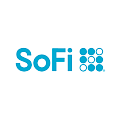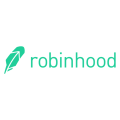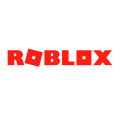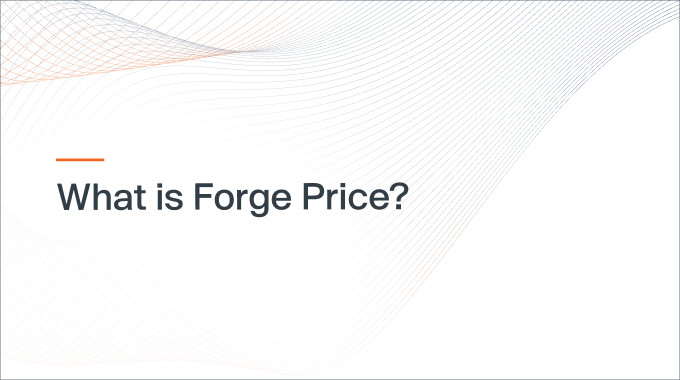The exit market in 2021 showed us that exits are like snowflakes – and no two are ever exactly the same. The traditional IPO faced massive disruption in 2021, as founders and executives gained more choice and flexibility in how to control their exit destinies. Companies that went public over the past 12 months did so backed by new strategies like reserving shares in IPOs for customers, employees and retail investors. They challenged the traditional 6-month lockup period, with some opting for no lockups at all. And they opted for a record number of SPAC mergers, with increasingly creative financing structures. Disruption wasn’t reserved only for public exits either – we witnessed creative deal terms for M&A that could be the start of a trend – depending on how that bet plays out.
Let’s dive into some of the most innovative, most disruptive exits from this past year.
Robinhood: Sharing the IPO wealth – with customers
Robinhood Exit Facts:
- Debut date: July 29, 2021
- Debut price per share: $38 per share
- Exit disruption: Set aside as much as 25% of shares for Robinhood customers
One of the most anticipated and disruptive public debuts in 2021 belonged to online trading platform Robinhood. The company adjusted the conventional IPO process to test “IPO profit sharing,” opening up the offering to Robinhood’s own customers on the same terms as institutional investors – as much as 25% of the IPO shares went to Robinhood’s individual-investor customers.1
Robinhood’s volatile performance since its debut has been a surprise to many, and now hundreds of millions of shares owned by early investors and employees are fully tradable after the lockup period ended, putting pressure on the stock price again by opening the potential for these groups to sell their holdings.
Health tech company Doximity leveraged a similar approach during its exit, reserving 15% of IPO shares for doctors in its network. They called it a “reserved share program,” where eligible doctors could buy stock during the public market debut at the same price as the select group of institutional investors.2
Electric vehicle company Rivian, which had the sixth largest ever IPO on a US stock exchange, reserved up to 7% of its IPO allocation for its directed share program (DSP); eligible investors included those who reserved a Rivian model R1S or R1T electric truck by a certain date, as well as company officers, directors and their affiliates.3
These tweaks to the traditional process stand to reward those people – the customers – who contributed to the value of the company during its private phase. And there are signs from companies in the IPO pipeline that more companies are following suit.
Roblox: Riding the direct listing wave
Roblox Exit Facts:
- Debut date: March 10, 2021
- Debut price per share: $64.50 per share
- Exit disruption: No lockup on selling shares and shares traded at 43% premium to reference price – benefitting employees and private round investors
Up until 2021, only four companies – Slack, Spotify, Palantir and Asana – opted to go public via direct listings. There was an uptick in this approach this past year, with Roblox, Coinbase, Squarespace, ZipRecruiter, Amplitude and Warby Parker all making their exit via direct listings.
Direct listings are often viewed as the least expensive and most efficient way to get to the public markets. This approach minimizes costs by cutting underwriters out of the process and gives a broader swath of investors the opportunity not just to participate, but to benefit from any IPO pop.
Roblox had a reference price of $45/share set by NYSE, but no shares actually sold at that price. Instead, Roblox opened at $64.50, and that increased value filled Roblox equity holders’ pockets.4
Shares of each company that debuted this year via direct listing, however, are down between 20% and 50% from their highs, though employees have had the ability to sell their vested stock from day one5 – another benefit of this approach.
SoFi: Leading the SPAC pack
SoFi Exit Facts:
- Debut date: June 1, 2021
- Debut price per share: $22 per share
- Exit disruption: Limited redemptions to 2% on its way to a $2.4 billion SPAC merger
SPACs gained tremendous momentum in 2021, with the market launching 456 SPAC IPOs for combined proceeds of $116.6 billion, outpacing the full year of 2020 that saw 248 SPAC IPOs with combined proceeds of $75.5 billion.6
With a SPAC comes flexibility, as business leaders can decide who they merge with, what the lockup period looks like, and if they need to raise primary or not. Companies such as advertising company Taboola, neighborhood social network Nextdoor, online lender SoFi, and news and entertainment platform BuzzFeed all opted for this approach with mixed results.
SoFi merged with Social Capital Hedosophia Corp V, a SPAC run by venture capital investor Chamath Palihapitiya (aka the ‘SPAC King’), in January and went public in June. Shares jumped 12% in its Nasdaq debut7 but have since dropped 39% from their high as of early January. Still, as many SPAC stocks fallen below the $10/share price most SPAC investors pay to buy into a SPAC, Sofi was trading well above that price as of Jan. 3.8
Similarly, as of December 2021, Nextdoor is 47% off its November high and auto insurer Metromile dropped 89% from its high in February.9 This performance is inline with the rest of the tech IPOs on this year – of the more than 50 US tech companies to go public this year through an IPO, SPAC or direct listing, only one is trading at less than 20% below its high stock price.10
When it comes to SPACs as an exit vehicle, the market has been saying “give me quality or don’t show up,” says Forge CEO Kelly Rodriques.
![]()
Floify: Porch’s acquisition comes with a stock value guarantee
Floify Exit Facts:
- Acquisition date: Oct. 27
- Deal terms: $76.5M in cash and $10M in stock
- Exit disruption: Porch, the acquirer, guaranteed it would double the value of its stock over by the end of 2024, or else make up the difference to Floify’s sellers11
Porch, which went public via SPAC in 2021, made headlines following its public debut with a series of acquisitions including that of Floify, a mortgage software provider. The structure of that deal made headlines as Porch guaranteed Floify’s sellers that it would double its value by 2024 or else make up the difference with either stock or cash.
Porch’s creative financing comes on the back of a record-shattering year for global M&A, which topped $5T for the first time, according to Dealogic . Companies took advantage of wide availability of capital at historically low cost, as well as the stock market’s continued rise which allowed them to leverage their own equity to finance acquisitions. Those values also gave CEOs confidence that the market will keep going up – something CEO’s like Porch’s will be betting on to pull off the guarantees like the one made with Floify.






